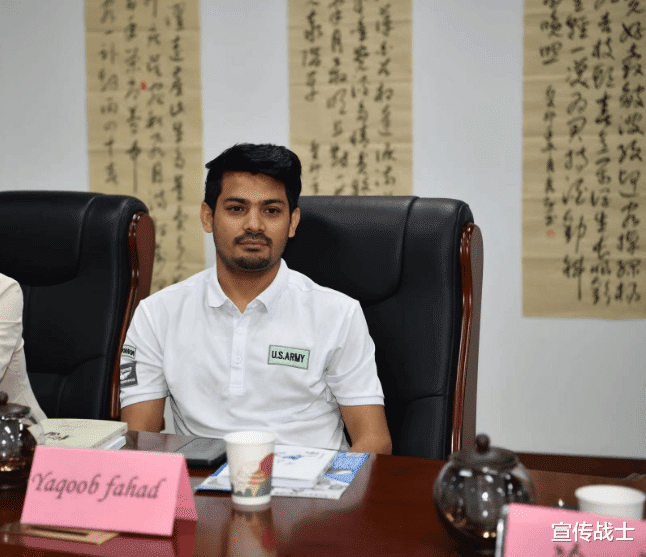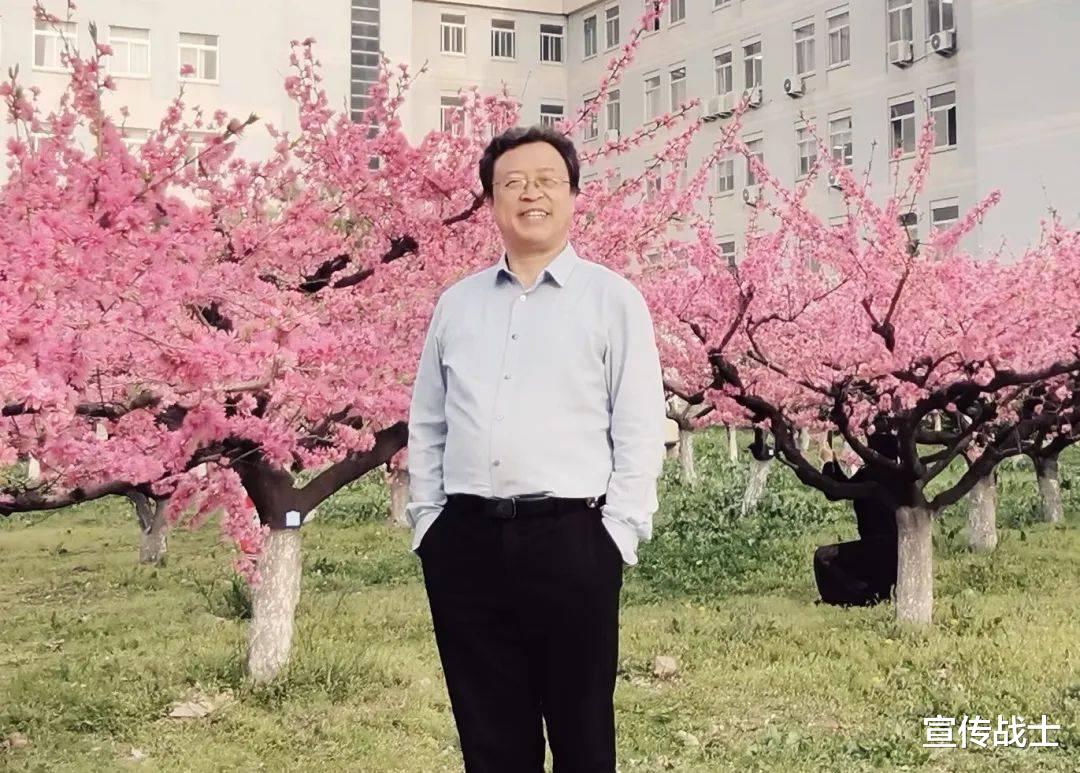来源:青空诗话
6月16日,“空也静汉英双语诗集《遍地乡愁》首发式暨诗歌研讨会”在古城西安举办。此次活动由咸阳市诗歌学会主办。诗人陈啊妮主持,咸阳诗歌协会会长凌晓晨,陕文投健康天仁中医门诊部董事长李平出席。

朱 宁、李鸿印、常晓通、冷莹、马婷、李建华、段遥亭、苏桓稼、李李 、长安肆少 、南苡 、雷秀玲、刘忠华、邹弗、党金红、魏诗苑以及摩洛哥Yasmine maha 、Kaissi btissiam ,巴基斯坦Khawaja Haseeb Magbool 、Yaqoob fahad 、Ali Hamza 、Muhammad Adeel等二十多名中外文化领域的代表和嘉宾参加了发布会。
据了解,《遍地乡愁》为空也静第六部诗集,是继巜轮回》之后,又一部汉英双语诗集,收录短诗115首。由山东农业大学外国语学院副教授倪庆行倾情翻译。发布会采取国内与国外、诗人与作家、线上与线下相结合的方式。大家普遍认为,空也静的诗歌短小精练,画面感强,注重点上发力,触及灵魂深处,以独特的语言个性与表达风格得到读者认可,引起普遍关注,成为诗坛一道亮丽的风景。
会议期间诗人们讨论恳切,精彩不断,中外友人互动融洽,气氛热烈,给所有参会的诗人留下深刻印象,每一位诗人带着独特的诗歌思考与立场积极发言,这是一个良好的诗学氛围,本次空也静汉英双语诗集《遍地乡愁》首发式暨诗歌研讨会取得了圆满成功。

研讨会部分发言
短诗更为考验诗性的超越力量
陈啊妮
空也静的诗歌独树一帜,每一首诗都写得短,我相信单纯对短制的追求,不是他的本意。这很可能与他的个人气质和语言掘进的速度相关。他的军旅经历及因此铸就的军人风格对他的诗歌的影响有多大?这是个有趣的问题,或根本不存在这一问题。至少我从《遍地乡愁》这本汉英版的诗集中,难能找寻军旅生活的影子。他写的是生活,生存和生命,是可扩展到人类普识意义的话语。甚至,从诗中我感觉到空也静的生活,也是我的生活,包括他生活中的焦灼,激愤,忧伤和清淡。也正因此,诗人的个体体验和思索,替代或先我们一步,有所发现,并说了出来;抑或他话语极简,将经他观察并命名的存在,创造性地挽留并“解救”。诗人是质朴炽烈又很细腻的,情感在他的诗中得到妥当的控制,但我们仍能触摸到他奔腾的血。
保持对自然界的敬畏,及人类生存的良知,是理解空也静诗歌的一条线索。我想这一切主要基于诗人独立的思维,对万事万物个性的认识和表达。也许他写的最初的几首诗歌,就差不多是现在这个姿态,而没有刻意模仿名人大家的写作套路,从一开始,他就锁定了自我对世界的译解,以及对传统“设定”的忽视,就一下喜欢并坚守通过十行之内的铺陈解决问题的模式。不能不说,到目前为止已写出了3000多首诗,皆是这样简约方式,会是一种顽强的历险,越写越多的诗,其身难以避免的复制性,语言游走或垒筑所形成的高地或深谷,也可能形成一种困境。所幸,诗人一方面自身一直有了这种自觉和警醒,另一方面也不断试图拓展边界。仅从这本诗集看,诗人主打的是“乡愁”,也是诗人写得最多的,我感觉他的视角,或敏感性,实际呈现了多重性。
空也静的诗,一以贯之的单刀直入并迅即产生的旋转,没有慢节奏或自带铺垫的启动,而直接划出一个横切面,由此而更快抵达“核心”,多少与持枪和手执剑刃相似。所以他针对一首诗的谋篇,充分考量的是出奇不意和一剑封喉,让客体来不及发出“啊呀”一声已致命,甚至做到了兵不血刃。当然我是读到“血”的,而且读到刀光闪烁后的白骨铮铮。这么说,并不是说他的诗就是一条快进的直线,绝不是,不然就没什么意义了,必须看到他内在的旋转、攀爬、跌落与回弹,以及突然的掉转和拐弯。因而我们从他的诗中,读到了精巧的复杂和上下左右贯穿的气息,形成了特别的诗歌美学。
还是要说到细节问题。短诗中的细节安排是诗歌成立的“命根子”,更是绝不能缺少细节。即便是一首短诗,最终印刻在读者记忆中的,还是细节。但是短诗的细节难度更高,多说无益,但分陈的细节与细节之间,又必须存在相互吸引或排斥的力量。可以说,诗中的细节是不完整,甚至是不确定的,它们之间“神合貌离”应是个原则,即内在的自洽性。当然,空也静的很多诗歌从表层上看是“一气呵成”的,仿佛说明了某个发现,或提炼出哲思或禅意。
我注意到了空也静诗歌中将世界浓缩的功力,让偌大的世界变小,进入我们的茶杯,或掌心,成为浑圆的玩物。这方面其实也涉及到空也静观察世间万物的方式,他更多把庞大的事物变小,又不丧失它的鲜活和个性。也许从遥远处看世界,如观察月亮,站在地面上观看更理想也更美些。甚至观察一个人,靠得太近也看不清,甚至会看错。
这本诗集中的《雨夜》《藏家女孩》《草原》《路遇》等,也都是写的平凡的小人物的命运。诚然,即使是写“苦难”的“真”,也是有虚饰性的,并非一比一的描绘,“服从于自己的内心”应是作为诗人的底线。具体诗性铺陈的“假与幻”,如《街头》中“他像一只沉睡的花豹”和“像一片枯黄的叶子”,比现实中的“真与实”更有文本价值,“假”和“真”的交递行进和相互融合,很能考验诗人善良意志和诗性修养。

诗歌阅读与留学生教育的思考
常晓通
大家好!很荣幸能在这里就魏彦烈的诗集《遍地乡愁》与大家进行交流探讨。在仔细研读这本诗集后,我有以下三点深刻的体会。
首先,是历经岁月沉淀后的深刻感悟。这种沉淀让他的乡愁更是对人生旅程的回顾与感慨。我们能从诗中读到他对过去时光的珍视和对生活真谛的探寻(《登大雁塔》《中秋节》),这是只有经历过岁月洗礼的人才能传达出的厚重感。其次,是军人本色与诗人情怀的融合。尽管已经退休,但军人的坚毅、果敢和担当依然在诗中若隐若现(《兵马俑》《八一》《青春》《草原》《可可西里》)。他用诗歌的形式抒发着内心的情感,这种独特的融合让诗集具有了别样的魅力,既有着刚性的力量,又有着柔性的温情。最后,是对生活始终保持的热爱与敏锐。即使已经退休,离开了紧张的军旅生活,作者依然能以细腻的心去感受生活中的点点滴滴。从故乡的一草一木到生活中的琐碎细节,他都能从中捕捉到诗意。这让我们明白,真正的诗人无论处于何种境地,都能发现美、感受美,并将其转化为动人的诗句。这种对生活不褪色的热爱和敏锐的感知力,是非常值得我们学习和借鉴的。
对于留学生教育的思考:第一:文化融合与理解:让留学生更直观地感受不同文化在诗歌这种艺术形式中的碰撞与融合,增进对中国文化和西方文化的双重认知,从而更好地适应多元文化环境。第二:审美培养与情感共鸣:诗歌的美感能培养留学生的审美情趣,不同文化背景下诗歌所传达的情感也能引发他们内心的共鸣,丰富他们的情感体验。第三:培养文化交流能力:借助双语诗歌,引导留学生进行跨文化的比较和分析,提升他们在多元文化环境中交流、合作与理解的能力。第四:增强文化自信:让留学生深入了解中国诗歌的魅力,有助于增强他们对中国文化的认同感和尊重,同时也让中国学生更加珍视自己的文化传统,增强文化自信。

常晓通,副教授,1985年生,西北工业大学力学博士,山西屯留人,现为西北工业大学力学与土木建筑学院土木工程系主任,曾在火箭军某部服役多年。长期致力于高等教育与结构动力学领域的理论与实践研究,发表相关学术论文二十余篇,指导学生获奖多次。
Yaqoobfahad(巴基斯坦):
summary of the poem "秋叶" (Autumn Leaves) by Wei Yanlie
The poem vividly depicts the scene of autumn leaves falling. With a gentle scratch by the wind, leaves start falling like flakes of dandruff, piling higher and higher. The accumulating leaves eventually bury this entire autumn season, along with the remnant scenery stored in the poet's memory. Only a few dry twigs are left, holding up a lingering dream of autumn.
The falling of leaves symbolizes the passing of time and the fading of memories. The poet stays up all night with red eyes, perhaps reminiscing about the past. Autumn represents a melancholic period of life's cycle, when things wither and die before renewal in spring.
The poem employs vivid imagery and personification. The wind is portrayed as actively scratching and causing the leaves to fall. The leaves are likened to dandruff flakes, creating a tangible image of their lightness as they descend. The dry twigs left behind are given the human quality of "holding up" a dream, imbuing them with purpose.
Overall, the poem captures the bittersweet feeling of autumn - the beauty of the changing colors contrasted with the sadness of nature's decline. The falling leaves serve as a metaphor for the transient nature of life, memories fading, and the passing of time. Yet the few remaining twigs suggest hope and the continuation of the cycle into the next spring.

Yaqoobfahad(巴基斯坦)
朴素情怀中的真诚倾诉
凌晓晨
空也静的诗集《遍地乡愁》收录127首诗,英汉双语,的确是自我诗歌经验的一次重大选择和挑战。
一、朴素的性格给予真诚的倾诉。诗歌是桥梁,对生活的认识,对诗歌的直觉和敏感,才是我们讨论的主要话题。他当兵带兵直到退伍,是他个人生活的真实部分,另一部分则是诗歌。刚正不屈,坚硬无比,如悬崖,如峭壁,更如大河中心的中流砥柱。我对他的感觉就是基岩的整体,稳定无比,难以移动,真正的显示了我们民族的性格本质和坚韧不屈。他的朴素不是一般的,而是根本性的,从他的诗中你不仅可以看出,而且能够直接进入人心,具有真切的伤害,甚至流血流泪。二、精悍的短小显明诗眼的位置。空也静的诗,都很短,短到让我感觉仍然可以继续写,有必要的话再增加三四段。然而,他的短是一种浓度的收缩,是干裂之后的大地上的皱纹,是枯死之后仰面天空的树枝,是大地深处埋藏的岩石。
三、乡愁意识让他的诗情铺天盖地。他是悲愤的,诗人的悲愤有二种选择:一种是对现实有着特别真切的语言冲击和思维惯性;二是长期的思虑会变为压抑之后的其他形态。空也静的乡愁,是一种铺天盖地而来的想象,他的所选的诗都能够回到故乡,回到童年,回到纯净的直视。四、诗意的位置与精神的扬弃。空也静的《遍地乡愁》所收的诗,只是他诗歌的一部分,不能呈现他的主要的诗歌经验。他的诗,一方面坚定地站在现实的基础上,意象的获取不是盲目的,而是有来源的,具有根深蒂固的原生形态;另一方面,他的诗有深藏的触感和外延的扩大,加之其气势磅礴的展开,又若虎豹一样的迅猛异常的收束。

凌晓晨,男,1963年10月,陕西永寿人。中国作家协会会员,中国诗歌学会会员,高级工程师。有1400余首诗歌在《人民文学》《人民日报》《诗刊》《星星》《绿风》等50家刊物发表,诗歌作品多次获得国内大奖。出版诗集《黄土色泽》《水荒》《火眼睛》《殿堂》《金属记忆》《天堂》,入选50多本诗歌选集。
AliHamza(巴基斯坦):
Wei Yanlie's poems capture the essence of nostalgia, melancholy, and the fleeting nature of life using vivid imagery and metaphors. They evoke a longing for one's hometown and past memories, often symbolized through natural elements like fallen leaves, wind, and moonlight.
Nostalgia and Memories
In "Late Autumn," the path is compared to "an air-dried sausage filled with nostalgia." In "Night," dreams are "lost in the growing thickness of snow." "Winter Days" personifies the haze as "a pustule pierced by late rain." Many poems reflect on aging, such as in "The Old Man," where the poet envisions his future self as "a pile of clay molded into a human image by wind." Memories of childhood and hometowns frequently appear. In "A Shadow Puppet," past events are revealed through finger movements. "Migrant Workers" likens hometowns to "a waning moon," while "Late Autumn" describes how "the past fades," but "loneliness hides in an album, licking its old scars and new wounds."
Nature and Cycles of Life
Nature is a recurring theme, symbolizing the cycle of life. In "Spring Breeze," leaves become "weapons for charging," and flowers use "beauty tricks," with thunder and lightning making "a feint to the East but attack in the West." "Autumn Rain" describes "curling smoke from kitchen
chimneys" that brings past events to light. Seasonal changes are depicted vividly. In "Autumn Leaves," "a gentle scratch by the wind" causes leaves to "fall like flakes of dandruff, piling higher and higher." "Cold Dew" features a pomegranate's grin making "maple leaves blush half the hillside," while the autumn wind "eats up the chirping of birds."
Social Commentary
Some poems address social issues and human nature. "Migrant Workers" describes their sweat as "reserved seeds" scattered on city edges. "Freeing Captive Animals" laments that people are quick to "free a sheep, a fish, or a cow," but reluctant to "set free a man" from "slanders, curses, plots." "Life" paints a bleak picture, with "the face of life" deformed by "old hatred piled with new wounds," and the "secularity between black and white" causing "calluses all over the face." "Self Mockery" suggests that when "poetry loses its past temptation," one must "remove the signboard of the exclusive shop and shift to selling articles of daily use."
Poetic Techniques
Wei Yanlie uses vivid metaphors and personification throughout his work. In "Cableway," the cable car "spreading its wings like a bird flying higher and higher" dives into the sky. "Maple Leaves" are compared to "a butterfly spreading its frightened wings at dusk." Contrasts are frequent, as in "Sheep and Shepherds," where "the sheep are concerned about the grass while the shepherds are only obsessed with mutton." In "Topic," the poet says, "even if I can't afford an apartment, at least I can eat my fill to become plump and sturdy." The poems blend reality with imagination and surreal elements. In "Lover," after "the lamp is extinguished, she plods on the moonlit road step by step, close to me." In "Mid-Autumn Festival," "the past, like a headless and tailless fish, swims around and never gets hooked."
Overall, these poems offer a poignant exploration of human emotions, societal issues, and the beauty and transience of the natural world through Wei Yanlie's masterful use of imagery, metaphor, and lyrical language.

AliHamza(巴基斯坦)
军旅生涯的诗意情怀
朱 宁
我写不了诗,能参加这个研讨会,全凭与作者的感情。利用这个机会,想说三点。
1、丰富的工作阅历,拓展了诗歌创作的触角。空也静在部队服役30多年,先后在野战部队、边防部队、预备役部队、省军区系统任过职,有团、师、集团军、大军区机关工作经历。担任过指导员,教导员,政治处主任,团政委,军分区政治部主任。足迹踏遍了西北五省区。这些丰富的工作经历、人生阅历,以及大西北的风土人情、一草一木,不失时机地融入他的诗歌,为他创作提供了丰富的素材、感悟与灵感,极大地拓展了诗歌创作的视野。
2、扎实的文字功底,夯实了诗歌创作的基础。空也静在部队长期从事政治工作,特别是担任过机关宣传、秘书、组织科长或处长,这些岗位在部队都是跟材料打交道的,是大家眼里的笔杆子。多年的岗位历练,极大地提升了他的思辩能力、理论水平和写作技能,练就了过硬的文笔,也加重了对文字的兴趣与热爱,让他能轻车熟路地在字里行间游走,把一个个汉字,摆弄成优美的文章,诗歌只不过是多年爱好的延续,是另一种状态的表达,是多年积淀的一次爆发。
3、持续不断地发力,增强了诗歌创作的活力。近年来,空也静先生先后出版多部诗集,逐步形成自己独特的写作风格与鲜明的诗歌特性,靠不断的努力和探索,得到越来越多人的肯定和追捧,成为部队人员聚会绕不开的话题。但他仍然保持初心,激情不减当年,基本每天都在写。不断有作品见于报刊杂志。他的诗带有一定哲理性,善于以小见大,像银针,像热灸,令人怦然心动,或哑然失笑,或掩卷沉思,或引发共鸣……

朱 宁:原预备役某团政委
鲜明的军旅特色
李鸿印
魏彦烈先生是我非常敬重的一位作家。彼此相识后,他的每一首诗歌我都能在第一时间读到,他的作品常常给我启迪,引发我的创作冲动。首先,我觉得这本诗集取名《遍地乡愁》非常好。乡愁,自古就是文学作品永远写不完的主题。如今,望得见山,看得见水,记得住乡愁,成为2013年中央城镇化工作会议文件金句,引起全民共鸣,成为建设中国生态文明的重要内容。诗人作为文化工作者,与时代脉搏同频共振,共情共鸣,既是光荣责任,也是自觉义务。其次,从艺术表现手法上来看,魏彦烈的诗,言短意长,意象饱满、空灵悠远、引人入胜。
再者,魏彦烈的诗,具有鲜明的军旅特色,正气凛然、刚烈威猛,大爱仁厚、满怀豪情。第四点,魏彦烈的诗,用词精妙、语义丰富、含蓄隽永,令人回味无穷。当然,魏彦烈的诗,还有很多值得学习的地方,由于时间关系,我这里暂时先列举这几首,抛砖引玉,期待和其他文友共同研讨交流。

李鸿印,笔名曲直,陕西省作家协会会员、陕西省职工作协会员、陕西省国防职工摄影协会理事。一千余篇作品发表于《人民邮电》报、《通信企业管理》等期刊。作品入选《诗品短诗两百家》《陕西文学年选•诗歌卷》等,诗文、摄影在省内外多次获奖,出版诗集《人间烟火》。
空也静:羌杂世间的拾贝人
冷莹
在我平时的阅读里,诗歌是必不可少的,现代诗歌里也有不少我喜欢的诗人,像刘年、张执浩、张二棍等等,他们的作品都是我比较喜欢的。我想,好的文学作品,无论何种形态,它的底色是相通的:对人世怀有朴素的慈悲。
第一次读到空也静的诗集,内心是即刻被触动的。后来我又陆续有意去读了他更多的诗歌,包括他最新的诗集《遍地乡愁》。他的诗歌立足现实,心寄云端。他不写空话套话,踏实从生活的尘土里出发,掏心窝子地向诗歌背后那些面目模糊的读者们付出他灵魂的真诚朴质。空也静是一个值得长久去追随留意其作品的诗人。在他的身上,具备一个好的写作者应具备的高敏体质,他以深刻的共情,敏锐于这世间的悲伤、苦痛,也敏锐于这世间的温情与美好之处。每个写作者内心深处都有一个无法回避的黑洞,它来源于对生命本质的深层思考。写作,就是坚持直视黑洞、叩问自己答案的过程。在空也静的诗歌里,你可以看得见这种不懈叩问的身影,可以看见,他在捍卫生活真相的同时,随时在诗歌的意象世界里为灵魂奔突着洁净的出口。在这羌杂的人世海滩上,诗人空也静,是那个以极静之心捡拾美好细微事物的拾贝人。
当每一本作品离开作者,它就宛如一个新生孩童开始了自己在这世道的飘泊。在此,衷心地祝福《遍地乡愁》拥有它自己喜悦而幸运的旅程。最后,借用空也静自己的一句诗寄语他这本新的诗集:一切真相早已浮出水面,熟透的思想挂在枝头。

冷莹:中国作家协会会员,中国水利作协协会会员,中国报告文学学会会员。已发表散文、小说、水利纪实等作品逾百万字。出版有小说集《请晚点再离开我》《所爱隔山海,山海亦可平》《遇见你之后,都是好时光》,散文《心若向阳,无谓悲伤》,国家重点工程南水北调长篇纪实《丹心寄北流》等专著。
Kaissi btissiam(摩洛哥):
Ladies and Gentlemen,
Today, I have the pleasure of speaking to you about a remarkable collection of poetry by WEI Yanlie, titled "遍地乡愁" ("Everywhere Nostalgia"). This bilingual collection presents a profound exploration of life, nature, and human emotions through its vivid imagery and masterful use of metaphor.
Each poem in this collection invites us to pause and reflect on the intricate tapestry of our existence, drawing us into a world where the natural and the human realms intertwine in delicate harmony. Let's embark on a brief journey through some of the key poems that make this collection so compelling.
In "Wolves," WEI Yanlie transports us to a tranquil yet mystical scene where the arrival of spring and the melting snow are depicted as wolves painting the grassland with their brushes. The silent, watchful eyes of the wolves at night symbolize nature’s persistent and vigilant presence. This poem reminds us of the ever-watchful and unyielding force of nature that surrounds us, urging us to appreciate its beauty and power.
"Ankang" offers us a moment of serene beauty and tranquility. Here, a beautiful night is soaked in river water, likened to a dream. The poet scoops up half of the moon and hangs it on a branch, allowing the wind to dry it gradually. This imagery reflects the ephemeral yet profound moments of peace that we experience, inviting us to cherish the quiet beauty of our surroundings.
In "Spring Rain," the poet captures the capricious nature of spring weather, comparing dark clouds to cunning tricksters and the sky to a bluffer. The metaphor of a chess game reaching a critical juncture but lacking resolution highlights the playful and elusive characteristics of the season. It reminds us of the unpredictability of life and the joy in embracing its uncertainties.
"Laba Festival" takes us back to basic, heartfelt values. The poet describes the need for a bowl of porridge to awaken humanity’s compassion, extracting nutrients from coarse grains and filtering out additives. This simple, traditional meal symbolizes a return to fundamental values, encouraging us to savor the essence of nostalgia and simplicity in our lives.
The "Temple of Heaven" reflects on the historical and spiritual significance of this ancient structure. The poet describes the departure of the emperor and his dynasty, leaving behind loess at a historical crossroad. This imagery emphasizes the temple's timeless beauty and its deep spiritual connection, reminding us of our heritage and the continuity of history.
In "Night," the evening becomes a time for reflecting on past events. The sunset pressing a button symbolizes dreams duplicating the past over and over. The moon, likened to a new stamp, and the wind, riding an old bicycle, contribute to this reflective and nostalgic scene. This poem invites us to contemplate our memories and the enduring impact of our past.
"Blessing" speaks to the renewal of cherished words like happiness, auspiciousness, and health. These words are compared to firewood, essential and warming, symbolizing the continuity and warmth of blessings throughout life. The poem reminds us of the importance of preserving and cherishing the positive aspects of our lives.
"Ginkgo" recounts the resilience and endurance of the ginkgo tree through adversities like famine, drought, and war. The tree's silent strength and ability to endure through the rise and fall of dynasties serve as a metaphor for stoic perseverance and silent wisdom. This poem encourages us to find strength in our resilience and to appreciate the silent wisdom we gain through life's challenges.
"Red Willow" describes a lonely and desolate figure standing at dusk, surrounded by an endless Gobi. This imagery conveys feelings of isolation and the harsh realities of life, highlighting the resilience required to endure such conditions. It speaks to the human spirit's capacity to withstand and overcome adversity.
"Returning Home" evokes the powerful imagery of hearts as arrows aimed at the homeland, with bodies growing wings for flight. The poem captures the restless and inevitable pull towards one's roots and the cycle of reunion and separation inherent in the human experience. It reminds us of the deep connections we have with our origins and the powerful emotions associated with returning home.
Lastly, "The Old Man" uses the metaphor of sunlight dragged out of an old house, squatting at a wall corner, representing the drained vitality and the passage of time. The old man, like a pile of clay molded by wind, symbolizes the inevitable aging process and the reflection on one’s future self. This poignant poem urges us to reflect on our own journey through life and the passage of time.
WEI Yanlie’s "遍地乡愁" is a collection that intricately weaves themes of nature, historical continuity, and profound human emotions. The vivid imagery and metaphorical language invite us to reflect on our own experiences, emphasizing the timeless beauty and resilience inherent in the world around us. As we delve into these poems, we are reminded of the interconnectedness of all things and the enduring strength of the human spirit.

Kaissi btissiam(摩洛哥)
他本身就是一首诗
马婷
诗人的语言总是最富灵性,常以为写散文的人对文字要求高,又常常折服于诗人的语言中。空也静老师的诗,尤为吸引人。虽是短而精,文字、意境、深度、思考、哲理以及许多人性的东西,又都暗涵其中,同时不失巧思与美感。有时读之恍惚间觉得与刘亮程先生的散文予人的感觉很像。可以说是短小中有大境界,精炼中含大乾坤。其形式自不必说。短短几句,抛出去,落下来,即使人动了心弦,触动、感怀、难受了。像幼时读安妮宝贝(庆山),发现他善用短句,读来清雅,浅淡,却能扯得你生疼。这种形式,又符合当下人的阅读习惯。很快能抓住人,使得你瞬间思绪万千。
最让我触动的其实是巧思,如果说每首诗的立意都很能抓人,那那种心思独巧的表达,更惹得人唏嘘赞叹。那诗中蕴含的感情、哲思,诗人锐利的目光,和对当下乱象的讽刺调侃,又将一个文人的、军人的傲骨,责任、悲悯等心思淋漓尽显。虽偶尔暗讽,但读其诗,又总有种宽容的,淡看一切的感觉。似一个智者看穿一切却云淡风轻的视角。所以私下里想,以前没有系统地细读空也静老师的诗,零散得看一些时,只觉得好。细读之后便觉不敢再见了,怕被诗人悄无声息地剖析。推杯换盏间,已淡然看穿我们偶尔的伪装或浅薄,而后成了诗歌中的符号。
此外,其对万物的细腻感受亦教人唏嘘。我总说写作教不了,不是说文字不能教,而是一个人的感受无法传。一个人自身是俗的,作品自然是俗的。一个人是有灵气的,他的感受不同,作品必然灵动。人与人交往到最后,得以灵魂见灵魂时,是抛却了皮囊,没有年龄身份之分的。那怎样灵魂见灵魂,就是通过文字,通过读其作品。以前可能认得他是魏政委,是诗人,是把酒言欢,持茶共饮的相识。现在了解,只是这个人,这位先生,他的内心世界,他的灵魂。他本身就是一首诗,一本书,我读懂了。

马婷:中国作协会员,西安市作协副秘书长。作品见《中国作家》《青年作家》《山花》《雨花》《湖南文学》《四川文学》《边疆文学》《人民日报》《光明日报》等。多篇作品被《散文选刊》转载,并曾于《西安晚报》等开设专栏。著有作品集《十亩之间》《静居长安》。曾获“丰子恺散文奖”;“冰心散文奖”;“陕西青年文学奖”等。作品《尺八》《酒海》被翻译成英文于国外发表,另有多篇作品选作“中小学语文阅读试题”。入选:陕西省作协定点深入生活签约作家,西安市委宣传部“百青人才”等。
若有所思的哲学意味
段遥亭
几年之前,在一位文友的诗歌研讨会上,与军旅诗人空也静有过一面之缘。这次应邀参加他的双语诗集《遍地乡愁》首发式暨诗歌研讨会,恰逢周末一场夏雨,给酷暑难耐的城市带来了一些凉爽。因为人生经历与生活地理的缘故,我对西部边疆、青藏高原有一种特殊的感情。空也静曾经在青海、甘肃等地从军30多年。古往今来,西部边陲都是盛产边塞诗歌的高地,青海地区也从未缺席。早先年被誉为“青海的高车”昌耀,后来的诗人、诗评家燎原,都绽放出“思想的格桑花”。空也静是紧随其后的高原诗人的继承者。
印象中的空也静保持着一种冷静的思考状态,似乎与喧嚣的人间烟火保持了一点距离。却不失一种敏感的观察力与创作热情。他的身上没有人到中年未老先衰的暮气与慌乱,保持了一个老兵退役不褪色的军人气质。诗歌已成为他日常生活中不可分割的一部分,诗歌的存在使他的生活多了一份诗意和美感,并伴随着一种若有所思的哲学意味。我零星读过其中一些作品,大多数为身轻如燕的短诗,就像一只快速反应部队纵深穿越无人区,探索发现一个人独特的精神视野。

段遥亭,陕西白水人。中国作家协会会员,新疆作家协会会员,陕西文艺评论家协会会员。作品散见于《中国民族报》《人民陆军》《西部》《西南军事文学》《青海湖》《延河》《草原》《诗潮》等百余家报刊。散文集《野马天山》入围第六届鲁迅文学奖,出版作品集《有水曰白》、诗集《马背上的光阴》多部。曾获新疆诗歌节二等奖。
赤诚与悲悯的合唱
苏桓稼
小时候,很多次,沉浮间,我热爱并向往着军旅生涯,向往“蝉鸣空桑林”,向往“幽并客”“玉关情”,向往边疆、戈壁孤悬的皓月——像书的腰封,像一首绝句。后来固然走上别的道路,但情愫常在。魏彦烈先生怀着诗意寻味军旅。这种诗意是铿锵的,也是柔韧的,是“风的刀尖”“大江南北”,也是“春天远方”玉兰花瓣。他将赤诚和悲悯浇灌成秦川、星光与乡愁,于写实的钢铁和写意的草木中怡然自得地游走。
每个人都有自己对诗的考量,准确、警醒、平衡、迷惑,甚至无为,这绝非物理的长度或者可见的空间能够理清。腐朽或不朽,相遇或不遇,只有珍重,不可名状。尤其在中国这个诗的国度,有关诗的一切,都该得到应有的尊重。魏彦烈先生喜短句,善短诗,但耐读,耐人寻味。我猜这与他多年来在西北五省的军旅工作有关,或者有一定的关系。侠骨柔情,铁血担当,英雄气概,风霜雨雪,自然总是快意的,如刃如剑,又倚天万里。他的笔名“空也静”也相对阐释了几分他对诗歌的看法与展望。
六月的西安,再读魏彦烈先生的新作《遍地乡愁》,那些骨骼般坚硬的信仰,身后远去的桃花与往事,周旋于人世的依偎与疏离,仿佛跃然同一个舞台合唱生命,成为窗外清澈的蝉鸣。也许蝉鸣会在仲夏的喉咙里沙哑、失声,但乡愁永不会老去。

苏桓稼,诗人,导演。1992年出生于宁夏。宁夏作家协会会员,陕西省柳青文学研究会会员。先后任职于香港文汇报、宁夏电视台、西安电视台。作品发表于《星星》《诗潮》《杭州日报》《西安日报》《兰州日报》《文化艺术报》等报刊。现居西安。
Yasmine maha(摩洛哥):
Ladies and gentlemen,
Today, I am honored to speak to you about WEI Yanlie’s remarkable bilingual collection, "遍地乡愁" (translated as "Nostalgia Everywhere"). This anthology is a tapestry of poetic reflections that intertwine themes of life, nature, and the profound spectrum of human emotions. Each poem within this collection offers a unique window into the intricate beauty and resilience of the wo
